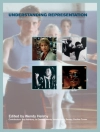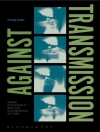Kara Keeling contends that cinema and cinematic processes had a profound significance for twentieth-century anticapitalist Black Liberation movements based in the United States. Drawing on Gilles Deleuze’s notion of "the cinematic"-not just as a phenomenon confined to moving-image media such as film and television but as a set of processes involved in the production and reproduction of social reality itself -Keeling describes how the cinematic structures racism, homophobia, and misogyny, and, in the process, denies viewers access to certain images and ways of knowing. She theorizes the black femme as a figure who, even when not explicitly represented within hegemonic cinematic formulations of raced and gendered subjectivities, nonetheless haunts those representations, threatening to disrupt them by making alternative social arrangements visible.Keeling draws on the thought of Frantz Fanon, Angela Davis, Karl Marx, Antonio Gramsci, and others in addition to Deleuze. She pursues the elusive figure of the black femme through Haile Gerima’s film Sankofa, images of women in the Black Panther Party, Pam Grier’s roles in the blaxploitation films of the early 1970s, F. Gary Gray’s film Set It Off, and Kasi Lemmons’s Eve’s Bayou.
Kara Keeling
Witch’s Flight [PDF ebook]
The Cinematic, the Black Femme, and the Image of Common Sense
Witch’s Flight [PDF ebook]
The Cinematic, the Black Femme, and the Image of Common Sense
قم بشراء هذا الكتاب الإلكتروني واحصل على كتاب آخر مجانًا!
لغة الإنجليزية ● شكل PDF ● ISBN 9780822390145 ● الناشر Duke University Press ● نشرت 2007 ● للتحميل 3 مرات ● دقة EUR ● هوية شخصية 6799104 ● حماية النسخ Adobe DRM
يتطلب قارئ الكتاب الاليكتروني قادرة DRM












